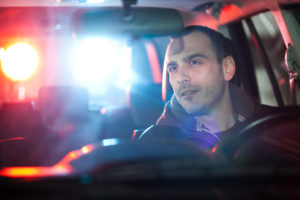
When a driver is facing a DWI charge (Driving While Intoxicated), they may also face serious consequences. A DWI charge may be given if a driver’s blood alcohol concentration (BAC) is over the legal limit of 0.08%. A law enforcement officer can determine a driver’s BAC through a Breathalyzer or an Alcotest.
There are some cases in which a driver is found with a BAC that is significantly higher than the legal limit. When this happens, the driver may receive a different charge than a regular DWI. If a driver is found with a BAC over 0.10% they may be charged with a High BAC DWI. Courts and law enforcement officers in New Jersey are strict in penalizing those who drive while intoxicated. These charges and their penalties may intensify for drivers with a High BAC DWI charge.
Penalties of a High BAC DWI
When a law enforcement officer charges a driver with a High BAC DWI, they take the offense very seriously. Drivers with a BAC of 0.10% or higher may face severe consequences. This may include:
- Up to 30 days in jail
- A suspended driver’s license for 7-12 months
- A fine between $300 and $500
- $100 to the Alcohol Education and Rehabilitation Fund
- $100 to the Drunk Driving Fund
- $75 to the Neighborhood Services Fund
- 12-48 hours in the Intoxicated Driver Resource Center
- The installation of an ignition interlock device during the license suspension and between 6-12 months after its restoration
The state of New Jersey does not issue hardship license to any drivers. A hardship license may be issued in certain states after the suspension of a regular license. It allows people to continue to drive under certain circumstances. A driver charged of a High BAC DWI in the state of New Jersey cannot request this license under any circumstances.
Defenses of a High BAC DWI
When an individual is facing a High BAC DWI charge, it is important to know their defense options. When a law enforcement officer stops a driver under the suspicion of drunk driving, they must follow certain rules before they can charge the driver. This may include:
- A lawful stop: A police officer must have probable cause for stopping a driver on the road. If they did not, the arrest may be unlawful and the evidence from the stop may be thrown out of court.
- Field sobriety tests: In order to determine if a driver is under the influence, an officer may conduct sobriety tests. These tests must be administered with the correct guidelines. If they are not, evidence may be inadmissible in court.
- A breath test: When a driver is pulled over for a suspected DWI, a breath test cannot be administered right away. The officer must conduct an assessment of the driver’s condition for at least 20 minutes before administering the test.
Contact our Firm
If you have been charged with aggravated driving while intoxicated and wish to speak with an experienced attorney, contact The Law Office of Andrew S. Maze today.
Our firm understands how serious criminal and personal injury cases are. We are prepared to guide you towards a favorable outcome. If you are in need of experienced legal counsel in New Jersey, please contact The Law Office of Andrew S. Maze today for any criminal and personal injury matters.